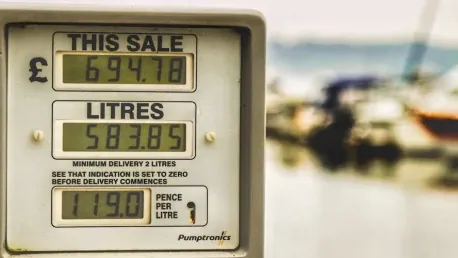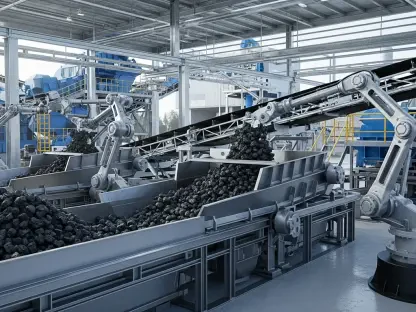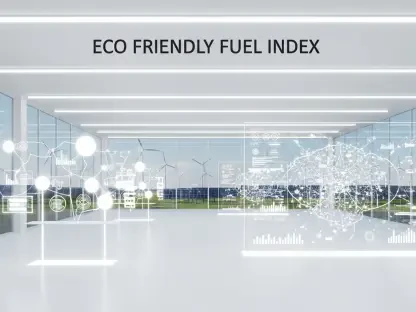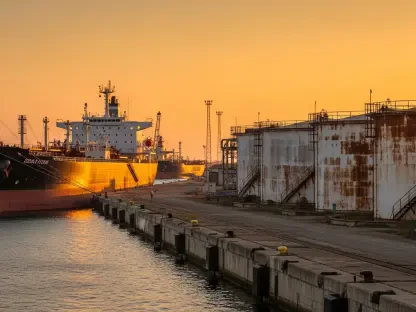A central concern for the maritime industry in 2024 is the quality of the fuel used by its vessels. With the global shipping industry relying heavily on marine fuels to operate, ensuring these fuels meet high standards is crucial for the efficient and safe operation of ships. Inefficient or contaminated fuels can lead to engine damage, increased maintenance costs, and elevated emissions, all of which pose significant threats to an industry already navigating tough regulatory pressures and economic challenges. As the industry pushes towards more sustainable and environmentally friendly practices, addressing these fuel quality issues remains a critical component of broader maritime strategies.
Persistent Fuel Quality Concerns
One of the primary fuel quality issues plaguing the maritime industry is the presence of cat fines in fuel. These finely divided catalyst particles, originating from the refining process, can cause severe wear on ship engines if not properly managed. Ship operators must continually monitor and filter out these particles to prevent engine damage, making cat fines a persistent concern for vessel maintenance and operational reliability. Moreover, the continued reliance on high-sulfur heavy fuel oil has only exacerbated this issue, necessitating advanced filtration and monitoring systems to safeguard engines.
Stability is another critical aspect of fuel quality, impacting more than just the immediate operational performance of maritime vessels. Stable fuel maintains a homogeneous mixture and prevents the formation of sludge or sediment that could impair engine function. Unstable fuels can lead to operational inefficiencies and increased maintenance, posing risks to the smooth operation of vessels. Ensuring fuel remains stable from the time of bunkering to its usage is a key challenge for fuel suppliers and ship operators alike. The challenge of maintaining stability is compounded during long voyages, where fluctuations in temperature and prolonged storage can cause the fuel to degrade.
Compliance with the International Maritime Organization (IMO) 2020 sulfur cap, which limits sulfur content in marine fuels to 0.5%, continues to be a significant regulatory challenge for the industry. Strict adherence to this regulation is essential to minimize environmental impact and avoid hefty fines. Ship operators must select and use compliant fuels, often requiring careful blending and rigorous testing to ensure sulfur content stays within permissible limits. This regulation has prompted many in the industry to turn to very low sulfur fuel oil (VLSFO), which, while compliant, has its own set of quality-related challenges that need to be managed effectively.
The Rising Trend of Biofuels
One trend gaining traction within the maritime industry is the adoption of biofuels, which are seen as a promising solution to reduce carbon emissions and enhance sustainability. With increased awareness of sustainability and emissions reduction, many ship operators have begun using biofuels, either regularly or through trial programs. Biofuels offer a renewable alternative to traditional fossil fuels, potentially reducing the carbon footprint of maritime operations. Their adoption is part of a wider industry movement toward cleaner energy sources and reduced environmental impact, reflecting growing regulatory and public pressure for greener shipping practices.
The use of biofuels, however, presents its own set of challenges, particularly regarding fuel consistency and quality control. Variations in the composition of biofuels can affect engine performance and reliability. Hence, implementation requires thorough testing and quality assurance to ensure biofuels meet the necessary standards for marine use. While biofuels have the potential to significantly lower emissions, the variability in their chemical composition can lead to unpredictable performance outcomes, necessitating stringent standardization and quality control measures. Nonetheless, the potential environmental benefits of biofuels make them an attractive option for operators seeking to align with global sustainability goals.
Moreover, regulatory frameworks are gradually adapting to accommodate biofuels, signaling a shift in how the industry manages fuel quality and compliance. The ISO8217:2024 standard is expected to encompass these alternative fuels, setting benchmarks for quality and consistency. This inclusion will likely spur more widespread adoption and investment in biofuels, driving forward the industry’s sustainability agenda. The standardization of biofuels under ISO8217:2024 will provide the necessary guidelines to ensure that these fuels are reliable and meet performance expectations, encouraging broader industry acceptance and use.
Regulatory and Market Influences
The landscape of fuel quality in the maritime industry is heavily influenced by regulatory and market dynamics, which together shape the strategies ship operators adopt to ensure compliance and operational efficiency. The introduction of the ISO8217:2024 standard represents a significant step in regulating fuel types and ensuring they meet stringent quality criteria. This new standard will likely see swift adoption, pushing the industry to adapt rapidly to maintain compliance. By providing clear guidelines and quality benchmarks, the ISO8217:2024 standard aims to harmonize fuel quality across the industry, thereby reducing the variability that can lead to operational challenges.
Parallel to this, the European Union’s Emissions Trading System (EU ETS) and ongoing IMO regulations continue to pressurize the sector towards reducing emissions. These regulatory measures not only drive the adoption of cleaner fuels but also encourage innovation in fuel technology and efficiency improvements. As a result, ship operators are increasingly exploring various alternative fuels and cleaner technologies to meet these evolving standards. The combined effect of these regulations is a dual focus on immediate compliance with emissions rules and long-term strategic planning for sustainable operations, pushing the industry toward a more environmentally responsible future.
Market dynamics also play a crucial role in shaping the industry’s approach to fuel quality and sustainability. The shift towards diverse biofuels, including renewable fuels of non-biological origin (RFNBO), is creating a competitive market landscape. Operators are now required to navigate availability, cost, and quality control measures to secure reliable fuel supplies. Consequently, managing the fuel supply chain becomes an essential strategic consideration for maritime businesses. The variability in biofuel availability and pricing, coupled with the need for stringent quality assurance, compels operators to develop robust procurement strategies that can ensure consistent and compliant fuel supplies.
Diversification with Alternative Fuels
The maritime industry’s investigation into alternative fuels such as methanol, hydrogen, and ammonia highlights its commitment to reducing environmental impact while maintaining operational efficiency. Methanol, in particular, is gaining attention due to its cleaner-burning properties and the relative ease of transitioning from traditional marine fuels. Methanol is seen as a viable intermediate step towards decarbonization, offering significant emissions reductions without necessitating extensive modifications to existing ship engines. Its compatibility with current fuel infrastructure makes it an attractive option for operators looking to make incremental improvements in fuel efficiency and emissions profiles.
Hydrogen and ammonia also present promising alternatives, offering the potential for zero emissions when produced from renewable sources. These fuels are in continuous development, and their adoption could significantly alter the landscape of marine fuel usage. However, these alternative fuels pose unique challenges regarding engine technology adaptations, safety standards, and storage infrastructure. The successful integration of hydrogen and ammonia into maritime operations will require advances in engine design, safety protocols, and refueling infrastructure, highlighting the complexity of transitioning to these next-generation fuels.
Drop-in fuels, which can be directly used as replacements for conventional marine fuels without requiring significant engine modifications, are also being explored. These fuels provide an immediate solution for reducing emissions without necessitating large-scale retrofits or new investments in ship engines, thus offering a more practical approach for many operators. The ability to use drop-in fuels with existing engines offers a transitional strategy for operators, allowing them to achieve emissions reductions in the near term while longer-term solutions such as hydrogen and ammonia are further developed and commercialized.
Data-Driven Insights and Fuel Consumption Trends
Analyzing fuel consumption trends provides valuable insights into the shifts occurring within the maritime industry, offering a quantitative lens through which to evaluate the impact of regulatory changes and fuel quality advancements. According to the most recent data, total fuel consumption by ships reported to the IMO slightly decreased from 213 million tonnes in 2022 to 211 million tonnes in 2023. This reduction underscores the impact of ongoing regulatory measures and industry efforts to optimize fuel usage and enhance efficiency. The slight decrease in overall consumption reflects the broader trend of improving fuel efficiency and shifting towards alternative fuels, even as global shipping activity continues to grow.
The breakdown of fuel usage provides further insight into the industry’s evolving fuel landscape. In 2023, traditional fuels such as heavy fuel oil, light fuel oil, and diesel/gas oil constituted 93.52% of overall consumption, a slight decrease from the previous year. This shift, while modest, indicates a gradual but steady move away from conventional fossil fuels and towards cleaner alternatives. The data highlights both the progress made in reducing reliance on traditional fuels and the significant use of alternative fuels, driven by regulatory compliance and sustainability goals. As the industry continues to adopt and integrate alternative fuels, these shifts are expected to become more pronounced in future consumption patterns.
Furthermore, the data illustrates how regulatory frameworks and market forces are influencing fuel choices within the industry. The move towards very low sulfur fuel oil (VLSFO) and biofuels is driven by the need to comply with emissions regulations, while also addressing the market’s demand for cleaner energy sources. These trends underscore the maritime sector’s adaptive strategies in response to environmental regulations and market pressures, reflecting a broader commitment to sustainable shipping practices. The ongoing evolution of fuel usage patterns highlights the dynamic interplay between regulatory requirements, market conditions, and technological advancements that are shaping the future of maritime fuel consumption.
Conclusion
A key focus for the maritime industry in 2024 is the quality of fuel used by ships. With global shipping heavily relying on marine fuels, ensuring these fuels meet stringent standards is essential for the efficient and safe operation of vessels. Substandard or contaminated fuels can lead to significant engine damage, increased maintenance costs, and heightened emissions—all serious issues for an industry already facing strict regulations and economic pressures.
The maritime sector is also striving to implement more sustainable and eco-friendly practices. Reducing environmental impact is not just a regulatory requirement but an industry imperative. Cleaner fuels contribute to lower emissions, which is a step toward achieving long-term sustainability goals. Hence, addressing fuel quality issues is a vital aspect of broader maritime strategies that aim to balance economic performance with environmental responsibilities.
Moreover, with international bodies, such as the International Maritime Organization (IMO), continually tightening emissions standards, the emphasis on high-quality fuels has never been greater. Ships powered by cleaner, more efficient fuels not only comply with regulations but also set a precedent for the industry’s future direction. Investing in better fuel quality ultimately supports the dual goals of operational efficiency and environmental stewardship, positioning the maritime industry to meet the challenges of the coming years successfully.









